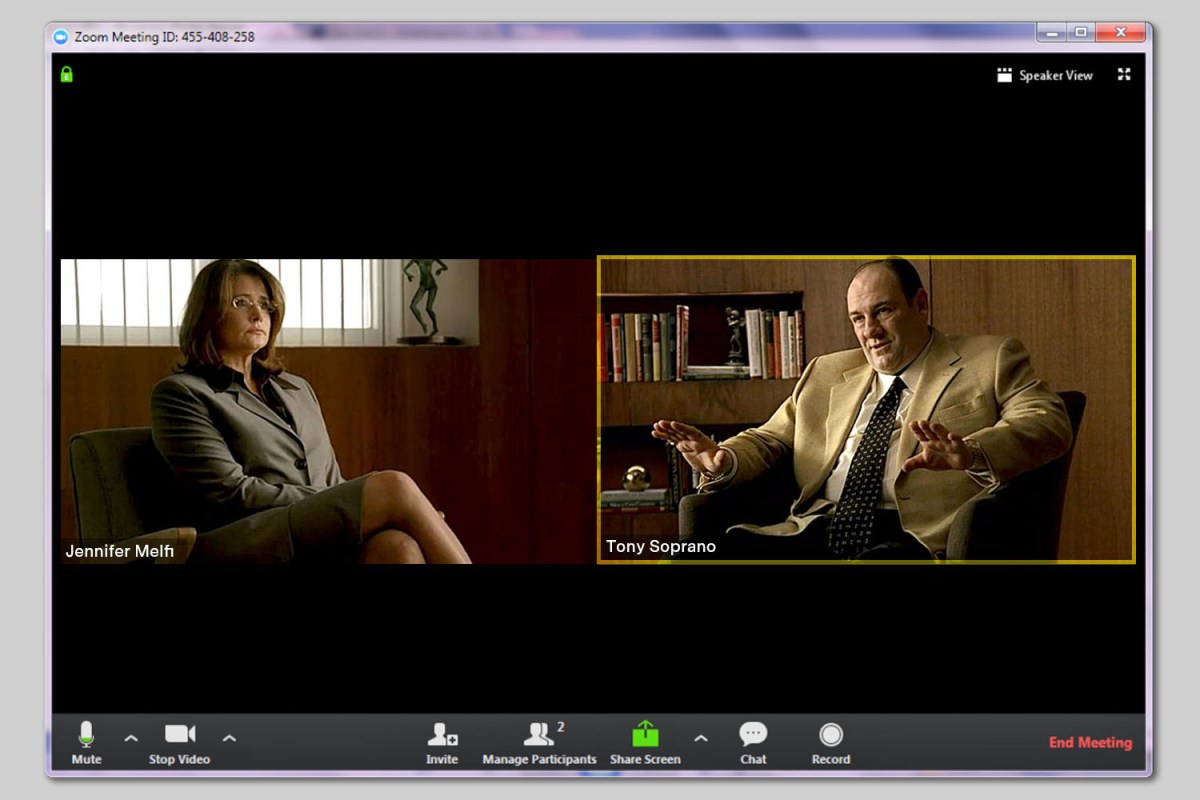During a time wherein the potential impact of the coronavirus crisis has been compared to that of a world war, anxiety levels have naturally ratcheted up to what feels like an all-time high. Experts and employers have told people to “take care of yourself,” but what if taking care of yourself means not being able to go to therapy?
For many, therapy is crucial for managing their mental health, especially amid the stresses of a global pandemic which has been responsible for thousands of deaths, businesses shutting doors and people having to social distance from one another for weeks on end.
“I cover the news, which has made escaping [the news] impossible, and my days have become significantly longer as a result despite having no events to attend and cover—an aspect of my job that I enjoy as it brings me, an extravert, a much-needed infusion of human connection,” says John, 30, of Brooklyn, New York.
“Needless to say, I’m exhausted and paranoid,” he says. “I’m also someone with PTSD, and as my version of that disorder is tied directly to fear over an inability to control circumstances that might leave me indefinitely or permanently separated from the people I love, reading and reporting the news these days is constantly triggering.”
John started remote sessions with his therapist before the spread of coronavirus, but now, as social distancing has become the new norm, others are transitioning their routine in-person therapy appointments to phone calls, FaceTime or other virtual sessions.
“Everyone’s mental health is a little more on edge than usual,” says Kendall Ciesemier, 27, of Brooklyn, New York, who has been participating in virtual sessions with her therapist while social distancing from home. “I think there’s a challenge in being distant and I find myself less likely to engage in harder topics because it’s not as private. It feels harder to feel connected.” While virtual sessions are certainly an adjustment, she feels that it’s a better alternative than no therapy at all.
Eddie Fu, 38, of Jersey City, agrees. Fu is now using phone calls to communicate with his therapist while he works from home. While he’s done phone sessions before while on vacation or during the holidays, he finds it challenging not being able to see his therapist’s facial expressions or gestures.
“I still feel better [talking],” he says “[But] we’ll have to see how that holds up in the next few weeks or possibly longer. I’m trying not to focus on the fact that I might not be able to go to therapy in-person for an extended period of time.”
However, if social distancing continues into the unforeseeable future, Fu isn’t opposed to trying virtual sessions.
“Video calls are really weird and uncomfortable for me, but if I find that doing voice-only isn’t really effective, I would have to give that a shot,” he says.
John says he’s glad he started virtual sessions last year when his therapist, who lives out of state, stopped commuting to her New York office. “I think it would have been more challenging if that change came amid all the panic and noise now,” he says. “That said, I’ve otherwise found very little difference between in-person and in-office, but I also have never relied on any physical contact from my therapist for support, and I know others might need to be held while they cry sometimes.”
Ciesemier believes that if she didn’t have a previously established relationship with her therapist, she would be much less likely to participate in remote sessions. “If I was new [to therapy] I think this time would feel really discouraging and I probably would want to just stop altogether,” she says.
Will the future of therapy be limited to phone calls and video chats? As of now, it seems like it’s the safest choice. Business Insider reports that text-based therapy is in high demand as COVID-19 anxiety forces people to stay home. Talkspace has generated more than 10 percent growth in requests since February 17, and other companies like Online Therapy and BetterHelp have seen similar upticks.
“So many things are changing right now and people need mental health support more than ever,” says Ariel A. Friedman, a therapist based in Palo Alto, California. “I personally would love nothing more than to be able to keep seeing my clients in-person, but since I can’t do that and ensure my clients safety at this time I will use all the resources at my disposal to continue to provide care … and for now, that means virtual solutions. This is a moment where some or different support is better than no support.”
“If it’s what we have to do, it’s what we have to do,” agrees Ciesemier. “It would make me sad to do this long-term and I’d definitely have to adapt to this new normal. It’d be a process, I’m sure.”
In the meantime, whether you’re in therapy or not, there are some things you can to help keep your anxiety at bay.
Take deep breaths
“Swinging between hyper-vigilance and self-doubt/guilt are normal responses to feeling out of control,” says Friedman. “It’s your nervous system trying to self-regulate. Taking deep controlled breaths helps you regulate your nervous system, preventing cortisol (your stress hormone) from being released. Doing this will support your body and immune system.”
Go for a run
Or a jog. Or a leisurely walk. You can even take a bike ride or go on a hike. The key is to avoid densely populated areas and to keep a six-foot distance from anyone who you don’t live with. Of course, if you’re experiencing symptoms of the virus or feel like something is off, don’t go outside.
Tune in to virtual fitness classes
There are tons of stay-at-home streaming services and resources that offer fitness classes. Peloton is inviting users to try their app free for the next 90 days, giving people access to their yoga, meditation, strength, stretching, and bodyweight training classes. If you’re looking for low-impact classes that don’t require any equipment, Dana Landgren, or the “Pelvic Floor Princess,” is known for her popular Instagram workouts. For streaming live and archived workouts at any time, Obé Fitness has a free seven-day trial where you can check out classes like dance and pilates that are all under 30 minutes.
Schedule FaceTime dates with friends
Pour yourself a glass of wine and settle in for a from-the-couch date with your friends. No, it’s not the same as hanging IRL, but you can pretend it is. And by scheduling FT dates with friends in advance, it will give you something to look forward to after a long day of working from home when you’re craving some social interaction.
Volunteer
If you’re feeling helpless, a great way to channel that anxiety is by volunteering. Check in with your elderly neighbors and ask if you can make a grocery run for them or pick up any of their medications. If you live in New York, you can sign up to participate with Invisible Hands, which provides safe and free deliveries for at-risk community members.
Try something new
Now is the perfect time to take up that hobby that you’ve always wanted to try. Maybe it’s learning to cook, taking up knitting, calligraphy, or signing up for a Couch to 5K. This doesn’t have to necessarily manifest as a “challenge”; rather, it should be an activity that’s enjoyable, makes you feel productive and serves as a much-needed distraction from the news.
Be kind to yourself
Everyone copes with crisis differently, but the most important thing you can do is be gentle with yourself. Don’t beat yourself up if you aren’t feeling up for tackling spring cleaning or running 10 miles in the park. Listen to chill music. Meditate. Spend the day on the couch watching bad reality TV if you need to. At the end of the day, do what feels good to you.
“I’m reading a lot, and forcing myself to relearn how to focus after years of having my brain splintered by the internet while I have nothing better to do has made this feel somewhat productive,” says John.
Stay present
According to Friedman, staying in the moment is key.
“Put away your phone when you’re eating lunch, turn off the TV while you’re having a conversation,” she says. “Identify the things in your control. Maybe that’s the music you listen to or the people you talk to. Try not to judge thoughts or feelings when they come up, no matter what they are. Be present in your body.”
The Charge will help you move better, think clearer and stay in the game longer. Subscribe to our wellness newsletter today.

























